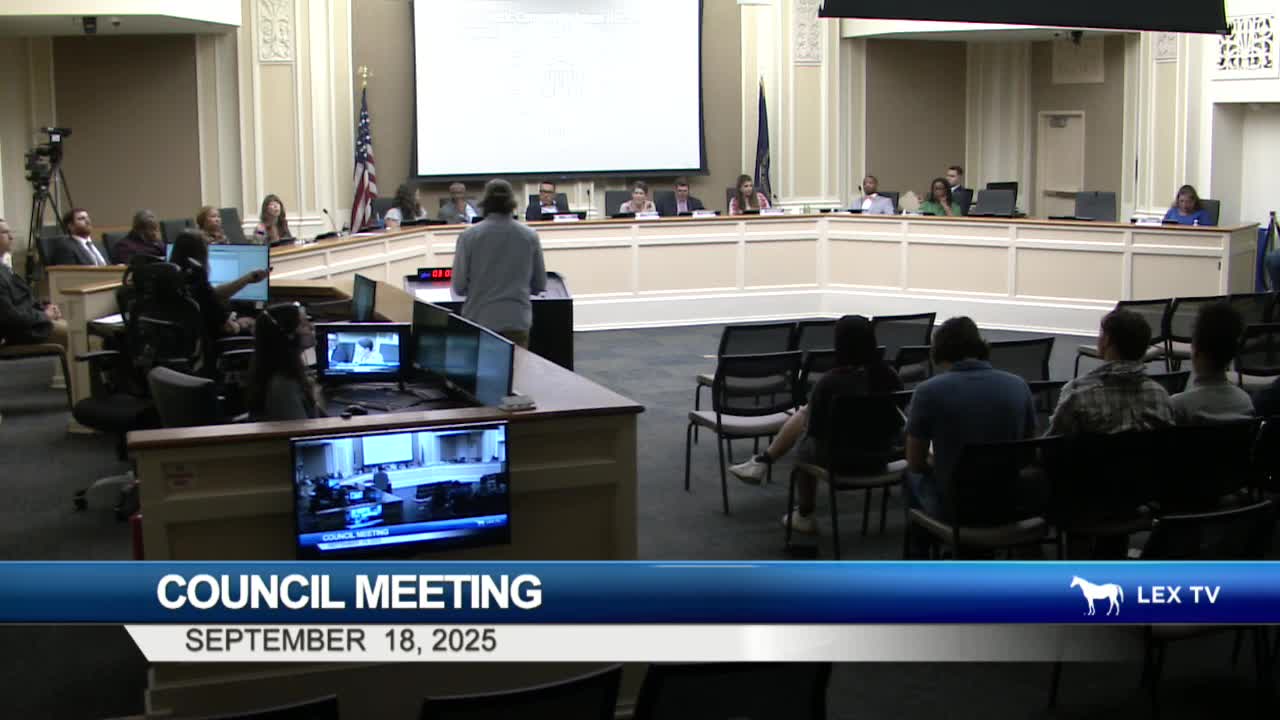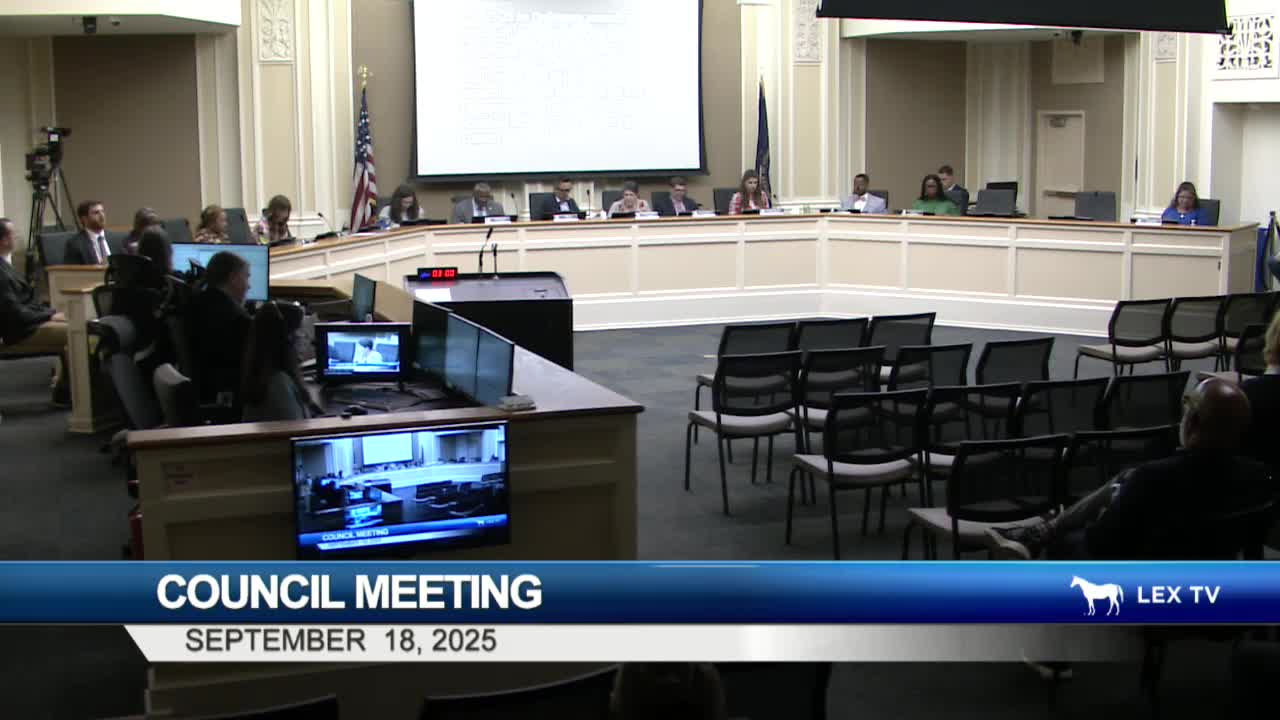Article not found
This article is no longer available. But don't worry—we've gathered other articles that discuss the same topic.

Council member recounts Windburn-area shooting, urges Windburn extension and youth programming

Students, residents tell council Lexington should end ties to weapons manufacturers, condemn civilian deaths in Gaza

